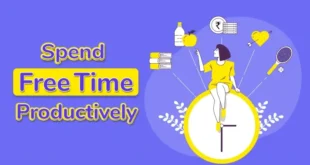Many people find it challenging to switch off from work in their private time, putting them at greater risk of stress or burnout. Relaxing after a stressful day at work can be difficult, especially when technology is everywhere to disturb you. However, stopping thinking about work is crucial to our health and productivity.
What does it mean to Switch Off?
Switching off from work means finding a way to make you stop thinking about work outside of your regular working hours. This helps you relax and charge energy for the next day. Especially for many people who work from home or do combined part-time jobs in the office, it’s essential to establish boundaries between your personal and working lives.
You may be tempted to check your email after work or think about the things that happened during the day. Making this a habit is often insufficient for you in the long run. It affects your physical and mental health and your relationships with others. Many ways to help you relax such as watching TV or listening to music. The main idea is you need to do something different from what you usually do at work.
Benefits of switching off

Many people struggle to relax after work, especially during stress and change. Often, these officers feel overwhelmed, anxious, and restless. They can have problems such as poor sleep, loss of appetite or overeating, fatigue, stress and depression, irritability, difficulty concentrating, and difficulty maintaining relationships.
Keeping yourself private is a good skill to relax, as it can help improve productivity in the workplace and reduce stress levels during the workday. You can also focus better and handle setbacks more easily. Reducing stress in all areas of your life helps you feel calmer, more rested, and more likely to contribute to relationships while achieving personal goals.
There are many benefits when you switch off from work. Including:
- Recover physically and mentally, allowing you to cope with work pressure and be more productive
- Extend your personal life so you put work matters into perspective
- Sleep better because of less anxiety.
- Create more time to relax and have fun, then improve your health and confidence
- Improve your relationship with other people
Why Is It So Hard To Switch Off?

There are many reasons why it may be difficult for you to stop thinking about work. As mentioned above, carrying smartphones during waking hours can make it difficult for us to get out. Some workplace cultures actively encourage and honor their employees ‘always on.’ However, some internal drivers also make it difficult to disable:
- When engagement becomes an obsession
- Unhelpful beliefs (e.g., you can’t be successful if you do not work at home)
- Perfectionism (e.g., when mistakenly thinking we can achieve 100% all the time, leads us to set unrealistic goals).
- Self-criticism is destructive (for example, when our self-judgment turns to self-pity).
- Fatalism (for example, when we stop believing it can get better).
5 Tips Tips to Make You Switch Off After Work

Therefore, everyone needs to learn to relax and stop working in their spare time. Techniques to help you switch off from work and relax are as follows:
1. Avoid working at home
It’s also good to work in your spare time from time to time to get things done. However, constantly working isn’t really helpful, as people tend to slow down when they become tired and sluggish. Working late into the evening also means people have less time to relax.
Many people say they have trouble sleeping if they work late at night. Therefore, working less in the evening and trying to avoid your phone is the way to relax and help you sleep well.
2. Find your hobby to distract you from your work
Research shows that active activities involving certain mental activities are more distracting than passive activities. But it’s unclear – some activities, such as watching television, maybe more engaging than others. The trick is to find something engaging to enjoy and your mind can skip work.
For some people, it might be a crossword puzzle over coffee or a glass of wine – for others; it could be dancing. When pursuing your hobby, your thoughts turn to what you are doing at that particular time – your hobby becomes your favorite thought. It’s a meditation for your mind.
3. Finish your work before leaving the workplace
If you don’t complete a piece of work, it may pop up in your mind even when you’re back home. Once in your thoughts, you may find yourself mulling over it, even though you may not be comfortable doing anything.
It doesn’t have to be part of the job – it could be an argument with a coworker. The main problem is that it is not finished. So it would be best if you tried to finish the work before going home. If the task is too big to complete in a day, break it down into small pieces and aim to finish a specific section before you leave work. This way, you will think less about the project in your spare time.
4. Practice and make a relaxing plan

Learn meditation, although it’s not for everyone. Meditation is truly the art of mental self-control. It’s a great way to take control of your mind and thoughts. Thus, meditation is a great skill to free your mind from thinking about work.
The premise of meditation is about the concern with how we feel inside. It’s a very effective technique. The more you practice, the easier it will be for you to relax.
5. Go out and meet up with families and friends
Socializing, especially with families and friends, can give you more energy and a positive outlook. It’s also a great way to share your concerns with others. You can meet online or meet in person and do activities together. Socializing with people helps distract you from work and build relationships. Therefore, planning events on your calendar each month gives you something to anticipate.
Conclusion
With many benefits that switching off brings, try to balance your professional and personal life to avoid affecting your mental health. You can also contact Boulo Solutions – a well-known Talent Recruitment Agency for advice and support to find jobs that match your skills, knowledge, and experience.
 Hi Boox Popular Magazine 2024
Hi Boox Popular Magazine 2024



